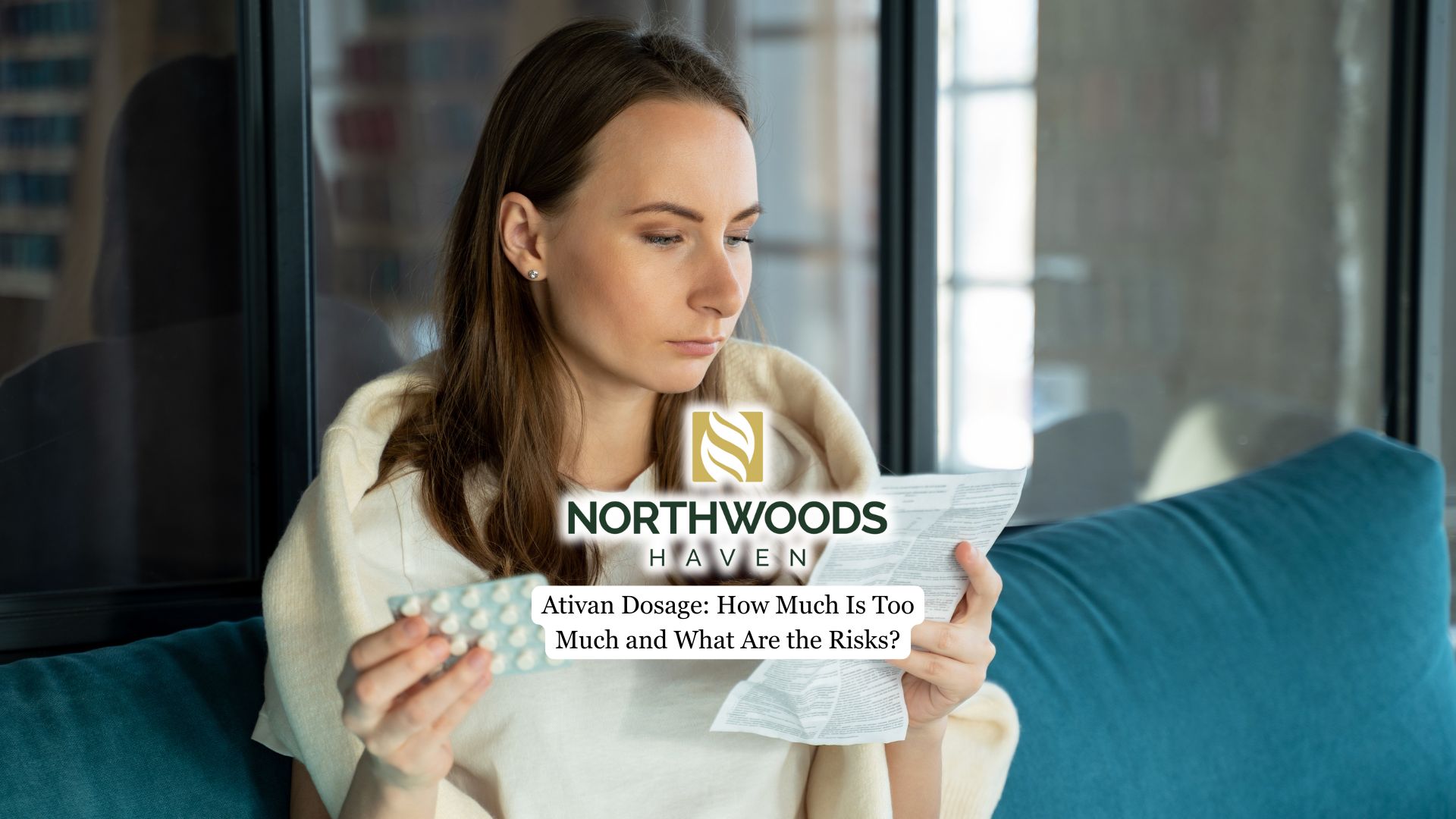If you’ve been prescribed Ativan, it’s important to be aware of its potential side effects, particularly drowsiness or sleepiness, which is among the most commonly reported. While Ativan can be highly effective in treating mental health conditions such as anxiety and insomnia, understanding how it may affect your daily functioning is essential for safe and informed use.
What is Ativan and How Does it Work?
Ativan is a medication classified as a benzodiazepine. It is prescribed primarily to treat anxiety disorders, insomnia related to anxiety or stress, and certain types of seizures. Ativan is available in oral tablet form and as an injectable solution.
Ativan works by enhancing the activity of gamma-aminobutyric acid (GABA), a neurotransmitter in the brain that inhibits nerve activity. This results in a calming effect on the central nervous system, reducing anxiety and promoting relaxation, but often causing drowsiness.
At Northwoods Haven Recovery, our Ativan addiction program in MN can help you overcome prescription drug abuse patterns.
Does Ativan Cause Sleepiness?
Ativan (lorazepam) is known for frequently causing sleepiness or drowsiness, affecting more than one out of a hundred people due to its sedative mechanism of action. By enhancing the activity of gamma-aminobutyric acid (GABA), a neurotransmitter responsible for calming brain activity, Ativan produces a relaxing effect on the central nervous system. This sedation can significantly impair alertness, reaction time, and coordination, rendering activities like driving or operating machinery hazardous, particularly during the initiation of treatment or when the dosage is increased.
The risk of pronounced drowsiness is heightened when Ativan is combined with other sedative substances such as alcohol, opioids, or additional sleep aids. Older adults, in particular, may experience more profound and prolonged sedation.

Onset and Duration of Sleepiness from Ativan
Ativan typically starts to make you feel sleepy within 20 to 30 minutes after taking an oral tablet. The peak sedative and calming effects are usually felt about two to three hours after taking it.
For most people, the main effects, including sleepiness, last around six to eight hours, though this can vary depending on individual factors such as age, metabolism, and dosage.
Who Is Most Prone to Sleepiness Caused by Ativan?
Certain individuals are more likely to experience pronounced sleepiness or drowsiness when taking Ativan:
- Older adults (age 65 and up): They are more sensitive to the sedative effects and are at greater risk for drowsiness, dizziness, and falls, which can lead to fractures. Lower doses are often recommended for this group.
- Individuals taking higher doses: The risk and severity of sleepiness increase with higher doses of Ativan.
- People with certain medical conditions: Those with respiratory problems like Chronic obstructive pulmonary disease (COPD) or sleep apnea, or those prone to shallow breathing, may experience more pronounced sedation and related risks.
- Individuals combining Ativan with other sedatives: Taking Ativan with alcohol, opioids, or other central nervous system depressants can greatly increase drowsiness and the risk of dangerous side effects.
- People just starting the medication or increasing their dose: Sleepiness is often most noticeable when beginning treatment or when the dosage is raised.
What are the other side effects of Ativan?
The other common side effects of Ativan associated with sleepiness are drowsiness and weakness. Dizziness often occurs due to Ativan’s sedative effect on the central nervous system and can be intensified when taken with other medications like antidepressants or blood pressure drugs. This may impair coordination and increase the risk of falls, especially in older adults.
Weakness and fatigue are also frequently reported, typically resulting from the medication’s calming effect, which can lower energy levels. Though lifestyle changes like exercise and good nutrition can help, other health conditions may also contribute to these symptoms.
More serious side effects may include mood changes (depression), confusion, and impaired coordination. Allergic reactions such as rash, itching, or difficulty breathing require immediate medical attention. While many side effects are temporary, it’s important to contact a healthcare provider if symptoms are severe, persistent, or disruptive, especially if you’re experiencing breathing problems, suicidal thoughts, or jaundice.
Final thoughts from Northwoods Haven Recovery
If you’re experiencing excessive drowsiness or other Ativan side effects that disrupt your daily responsibilities or quality of life, or if you feel that you’re depending more and more on the substance to go through your day-to-day activities, you should contact your health care provider to reassess your treatment approach.
At Northwoods Haven Recovery, we understand the delicate balance between using and abusing prescription drugs. Our experienced team is here to help you explore personalized treatment options that support both your mental health and daily well-being.



